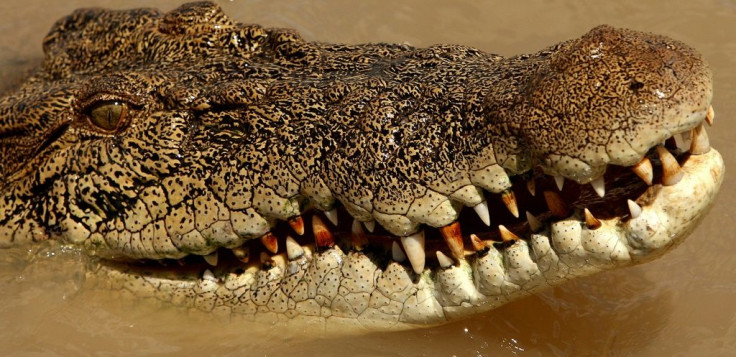Crocodile Attacks Spearfisherman's Head, Man Calls It 'Scariest' Experience
In a horrific incident, a 30-year-old spearfisherman was attacked by a saltwater crocodile in Western Australia's Kimberley region. According to a local report, the man was in Pender Bay, a remote region on the Dampier Peninsula, when the reptile leaped out and bit him on the face and head.
Local media posted photos of the man's injuries, showing cuts near his eye and on his head. Speaking to 7News, the unidentified man said while he escaped the attack, the incident was the “scariest he’s experienced in his entire life.”
The man was rushed to a hospital where he received treatment for his injuries.
Saltwater crocodiles, found in freshwater regions of eastern India, Southeast Asia, and northern Australia, can reach 17 feet and 1,000 pounds, but some may also grow up to 23 feet. Despite their large size and carnivorous nature, fatal attacks are uncommon in Australia.
In 2018, the Western Australia coroner ruled a 15-year-old boy, who died in March 2013, was killed by a crocodile. The boy's body was found in a mangrove swamp about 124 miles north of Broome. The attack took place after the teenager ran away from foster care, local media reports said at the time.
His body was found a day later after a 24-hour search. The unidentified teenager might not have realized the area was infested with crocodiles, local media reported.
There were reports the teenager suffered developmental delays and behavioural problems.
"His left [foot] had been amputated and a large saltwater crocodile was seen several metres away," coroner Sarah Linton wrote in her findings.
This was marked as the first fatal crocodile attack in Western Australia in more than three decades.


© Copyright IBTimes 2025. All rights reserved.





















